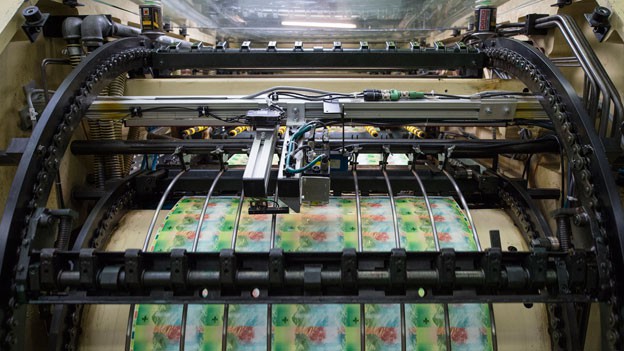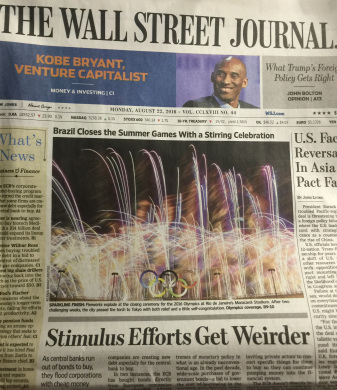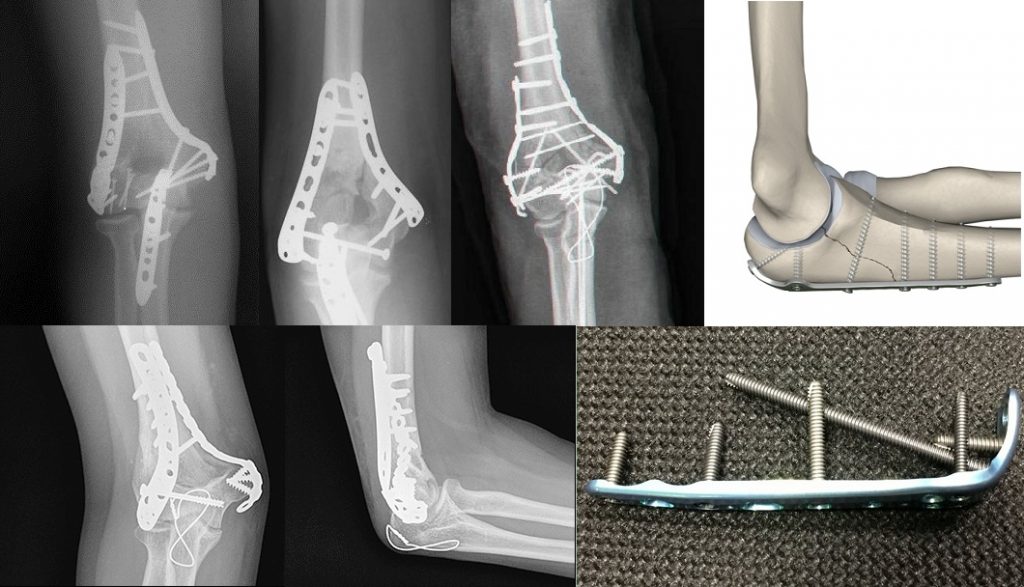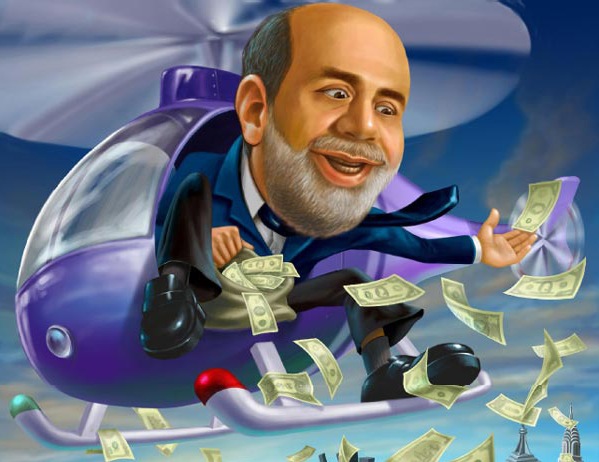Helicopter money is the rage. Central banks are talking about it. Economists are debating it. The media is rife with coverage. While it sounds important, it is not precisely clear what helicopter money means.
It appears to have originated with Milton Friedman. In 1969, he wrote: "Let us suppose now that one day a helicopter flies over this community and drops an additional $1,000 in bills from the sky, which is, of course, hastily collected by members of the community. Let us suppose further that everyone is convinced that this is a unique event which will never be repeated.”
Friedman offered a thought experiment of how policymakers could create inflation. With many observers thinking that officials have exhausted monetary policy, it is little surprise that the helicopter money has returned to the lexicon.
In 2002, Bernanke said that "A money-financed tax cut is essentially equivalent to Milton Friedman’s famous ‘helicopter drop’ of money.” This helps to demystify the concept a little. Two characteristics are brought out in relief by Bernanke.
First is the interrelationship between fiscal and monetary policies. This is one of the criticisms some like the Bundesbank's Weidmann has with some ECB policies. It blurs the distinction between monetary policy (ECB's mandate) and fiscal policy (for elected governments to decide). Consider that US monetary policy (QE) led to the Fed being the largest holder of US Treasuries.
The government pays interest to the Federal Reserve. Last year, the Federal Reserve gave back to the federal government a little more than $100 bln and in so doing, offset about 40% of the government's debt servicing costs.
The second notable characteristic of helicopter money is the it bypasses the banks. The idea is to provide funds directly to economic agents who would spend, like households and businesses and cut short the circuit of capital by removing the financial intermediaries. The financial intermediaries are banks. For various reasons, including regulatory requirements, existing non-performing loan problems, weak economies and soft demand, many banks are either unable or unwilling to lend.
US banks spent a good part of the Great Depression sidelined. The Federal Reserve lent directly to small businesses. Now in the US, there are two channels of capital distribution, the banks and the markets. Continental Europe and Japan still rely heavily on bank loans. In Europe, the bank channel remains in disrepair, and many fear problems are still festering below the surface of at least one systemically important institution.
A report out earlier suggests that the Japanese government is considering distributing "gift certificates" to low-income young people as part of a supplemental budget for the fiscal year starting next month. A direct cash disbursement, as I have suggested from a fraction of Japan's $1 trillion of reserves, could be saved, but the idea is "gift certificates" would not be saved but used to consume.
Japan and other countries have tried vouchers, but the outcome was not particularly successful. Perhaps this is because consumers do not increase their purchases but simply use the vouchers for what they would have bought in any event. Also, consider all those gift cards that are purchased but never redeemed. That speaks to leakages. Nevertheless, the concept is not all that different from what Fisher ha suggested cash that would expire. Use it or lose it.
Although the sovereign has a general monopoly on the coin of the realm, there are numerous exceptions. The Bitcoin may come to mind, but there is a better example since it seems mostly a novelty and of limited use. Some local governments have introduced scrip. In 2009, the largest US state, California issued an estimated $1 bln of IOUs. They differed from the kind that local governments issued during the Great Depression in that they were issued to a specific entity (supplier) and was not intended to enter general circulation.
There are two current examples that are worth noting. First, Brixton (south London area) has introduced the Brixton Pound. Reports suggest GBP150k are in circulation. The Brixton pound is fully backed by sterling holdings at the issuing credit union. It is estimated that around a dozen local currencies operate in the UK. The BOE has reviewed the local currencies and concluded that due to their size, they do not represent a risk to monetary or financial stability.
Ithaca, New York has introduced Ithacash. It too is meant to support the local economy. Reports suggest it will Ithaca will shortly issue physical currency notes.
One of the points that the local money illustrates is what would happen, if as some fear, the government's move toward a cashless economy. We do not think this likely or even possible in the horizon of most investors. Nevertheless, local communities can be counted on to innovate as necessary, meaning if the there is no official money, people will invent something to fill the need. Isn't that what soldiers did in Germany during the occupation period at the end of WWII? They did not use gold, which so many continue to argue is the ultimate money, but cigarettes.
Helicopter money has become a catch-all phrase to capture more aggressive and direct printing of money to spur economic activity and inflation. It is a subtle admission that monetary policy has not been exhausted. It also reflects a realization (and anxiety) over blurring monetary and fiscal policy.
Tags: Helicopter Money







































